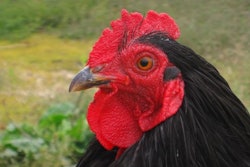
While humans keep other animals in their homes, those dogs, cats and other pets host their own set of other creatures. Just as each pet is different, the community of other organisms living on pets is itself unique. Addressing that individuality may help pet food, treat and supplement makers customize pet food to meet the specific needs of each animal.
Bacteria, viruses, yeast and other microbes inhabit pets from muzzle to tail. These organisms make up pets’ microbiomes. These microscopic communities influence a wide range of health conditions, from the digestive issues to obesity, cancer and mood. Scientists have examined the effects of the microbiome on pets with health problems, as well as the influence of probiotic and prebiotic supplementation to treat issues. However, the effects of supplementation on apparently healthy dogs hadn’t been examined as thoroughly, Ryan Honaker, Ph.D., director of microbiology with Nom Nom said. Honaker and his colleagues conducted an experiment by adding prebiotics and probiotics to the diets of healthy dogs. The journal Animal Microbiome published their results.
“In this study we saw that while all dogs were receiving exactly the same supplement, some of them had a greater shift in their microbiome than others,” Honaker said. “We investigated further and found that baseline microbial composition may be a determinant of how much response and benefit a dog could gain from the supplement. Individual responses dependent on baseline composition is an increasingly reported phenomenon in the literature, and we were excited to observe the same effect in our study.”
Precision nutrition for pets
Considering how each dog responded to the supplementation points to ways pet product makers can develop new products that consider pet’s individual microbiomes, genes, age, lifestyle and other aspects. Animals’ baseline conditions influence how they respond to specific dietary treatments, Honaker said. In personalized or precision nutrition these existing factors become key.
“Personalized nutrition is a relatively new concept in dog nutrition, but it provides an exciting opportunity,” he said. “We know each dog is different, and by understanding more how the microbiome of each dog responds to certain diets or supplements, it will help us tailor the best dietary regime to optimize their health.”
“The present study shows an association between baseline microbiome and the magnitude of their microbial responses,” he said. “This is a great first step, but we need more substantial evidence before personalized dietary recommendations can be made. We think the next important step is the ability to create a predictive model, using a myriad of machine learning techniques, to identify certain individuals who may benefit more from receiving the supplement. Dog parents can use such information to help make a decision whether they would want to give the supplement to their dogs. To facilitate this we’re working on a variety of studies and analysis to better understand the impact of diet and the microbiome on health so we can figure out the best ways to keep pups healthy and happy.”
Petfood Forum
Pet food customer demands now follow human food demands and health concerns including the microbiome. This changes which ingredients dog and cat food manufacturers purchase. Pet food ingredient commodity buyers can learn what these future demands might be at Petfood Forum.
Register for Petfood Forum
Petfood Forum brings together pet food professionals from around the world to network, exchange ideas and move business forward with one another and with the industry's leading pet food manufacturers and suppliers.
The in-person and on-demand event delivers the opportunity to learn about pet nutrition and ingredients, global pet food market growth, pet food safety, processing, packaging and more, all from leading, recognized pet food industry experts.

















